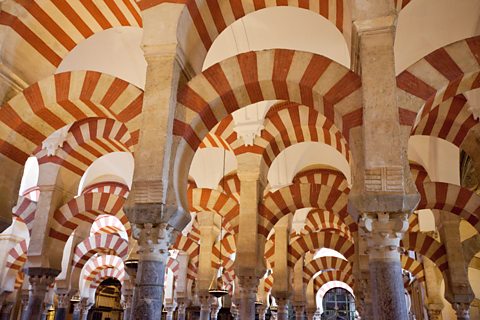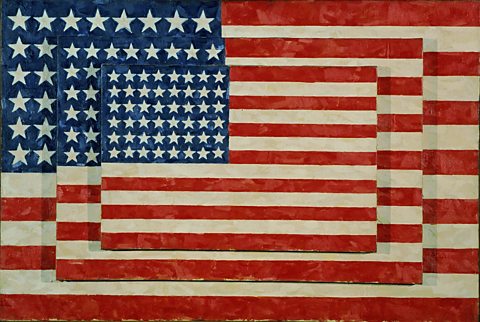Regular rhythm
The most obvious regular rhythm is one in which elements are repeated exactly over and over again.

The structure of the Mezquita in Corboda, Spain is supported by a series of striped arches supported by columns.
The spacing between columns and their size, shape, colour and pattern are always exactly the same.
The resulting regular rhythm suggests a space that could stretch on infinitely.

Regular rhythm can involve changing elements when the change is the same each time.

Three Flags (Jasper Johns, 1958) is an example of a regular rhythm. Johns reproduced the American flag three times. The flags are identical except their size changes each time.
In spite of the changes in scale, the relationship between the colours and shapes of each of the flags is easy to see.
The viewer’s eye moves smoothly from the larger flag at the back into the smaller one in the centre and back out again. It is pleasing to the eye and does not force the viewer into focussing on one particular point in the painting.